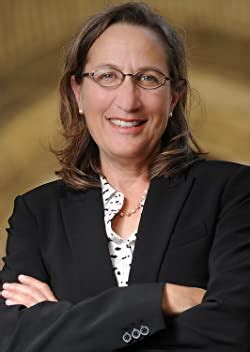A Quote by Mohsin Hamid
We need a self because the complexity of the chemical processes that make up our individual humanities exceeds the processing power of our brains.
Quote Topics
Related Quotes
Our prayer must not be self-centered. It must arise not only because we feel our own need as a burden we must lay upon God, but also because we are so bound up in love for our fellow men that we feel their need as acutely as our own. To make intercession for men is the most powerful and practical way in which we can express our love for them.
Checklists turn out...to be among the basic tools of the quality and productivity revolution in aviation, engineering, construction - in virtually every field combining high risk and complexity. Checklists seem lowly and simplistic, but they help fill in for the gaps in our brains and between our brains.
If only the scientific experts could come up with something to get it out of our minds. One cup of fixit fizzle that will lift the dirt from our lives, soften our hardness, protect our inner parts, improve our processing, reduce our yellowing and wrinkling, improve our natural color, and make us sweet and good.
The right to the city is far more than the individual liberty to access urban resources: it is a right to change ourselves by changing the city. It is, moreover, a common rather than an individual right since this transformation inevitably depends upon the exercise of a collective power to reshape the processes of urbanization. The freedom to make and remake our cities and ourselves is, I want to argue, one of the most precious yet most neglected of our human rights.
That is the story of our history - whether it's the pursuit of prosperity for our people or the struggle for equality for all of our citizens, our commitment to stand up for our values abroad, and our sacrifices to make the world a safer place. Let us remember that we can do these things not just because of wealth or power, but because of who we are. One nation under God, indivisible, with liberty and justice for all.
America can do whatever we set our mind to. That is the story of our history, whether it's the pursuit of prosperity for our people, or the struggle for equality for all our citizens; our commitment to stand up for our values abroad, and our sacrifices to make the world a safer place. Let us remember that we can do these things not just because of wealth or power, but because of who we are: one nation, under God, indivisible, with liberty and justice for all.
We need to reorganize our entire system of retirement plan investing and to develop federal standards of fiduciary duty for pension trustees and fund managers. These require "top down" intervention. But we also need investors to look after their own economic interests, a bottom up approach to our problems that is well within our individual power to undertake.
Our subliminal mental processes operate outside awareness because they arise in these portions of our mind that are inaccessible to our conscious self; their inaccessibility is due to the architecture of the brain rather than because they have been subject to Freudian motivational forces like repression.
A self that is only differentiated - not integrated - may attain great individual accomplishments, but risks being mired in self-centered egotism. By the same token, a person who self is based exclusively on integration will be well connected and secure, but lack autonomous individuality. Only when a person invests equal amounts of psychic energy in these two processes and avoids both selfishness and conformity is the self likely to reflect complexity.
I think our brains does have a tendency to be true to its own ideas and statements. Everything we do and everything we think about is a belief. Until we get to the point where we look beyond our own ego-self, and to some degree beyond our own mind, we are always going to make assumptions and have beliefs to make our brains feel more comfortable. And if we can get to a point where we embrace that uncertainty and doubt, and be willing to learn from that and to explore that, I think that that could be a very positive experience.
One way we exercise political freedom is to vote for the candidate of our choice. Another way is to use our money to try to persuade other voters to make a similar choice - that is, to contribute to our candidate's campaign. If either of these freedoms is violated, the consequences are very grave not only for the individual voter and contributor, but for the society whose free political processes depend on a wide distribution of political power.
To the extent that we honor all aspects of ourselves, we remove revulsion, self-hate, horror, and terror from our lives. As whole human beings we are the creatures of the greatest complexity on this planet. Respect for this complexity includes our insisting on acceptance of the inconsistent and incongruous.






































